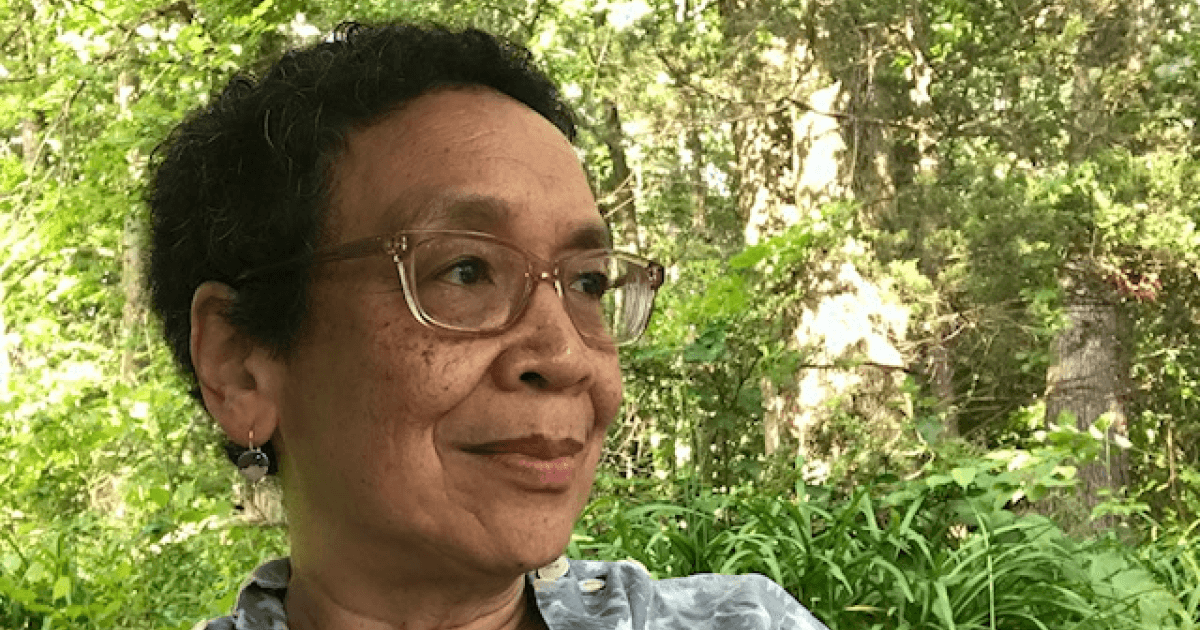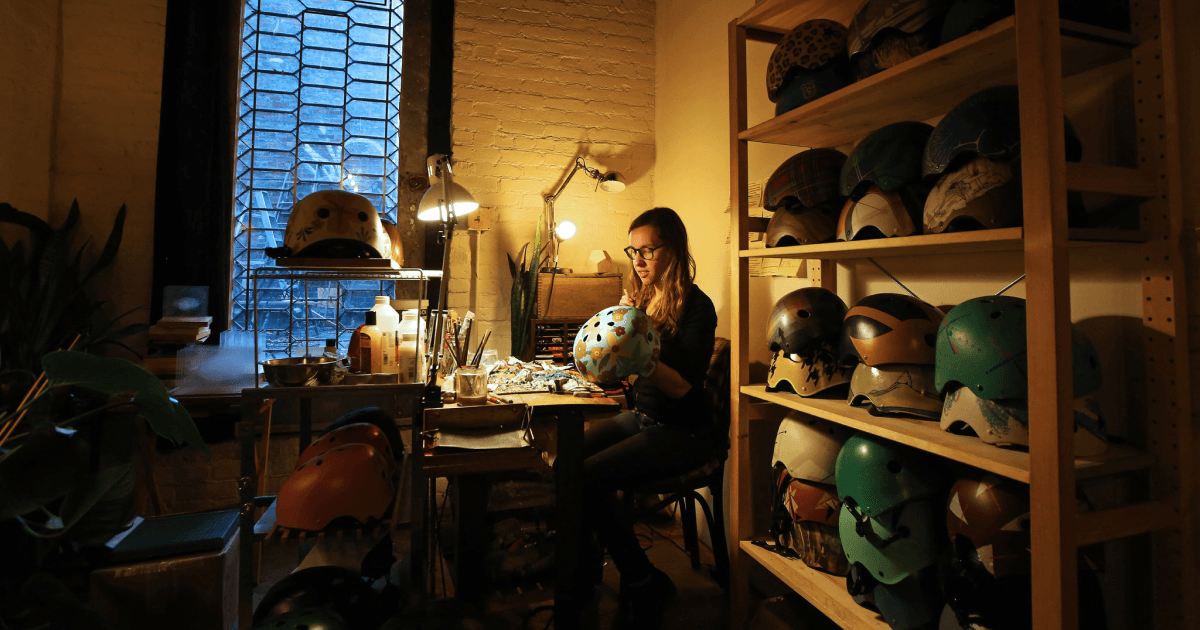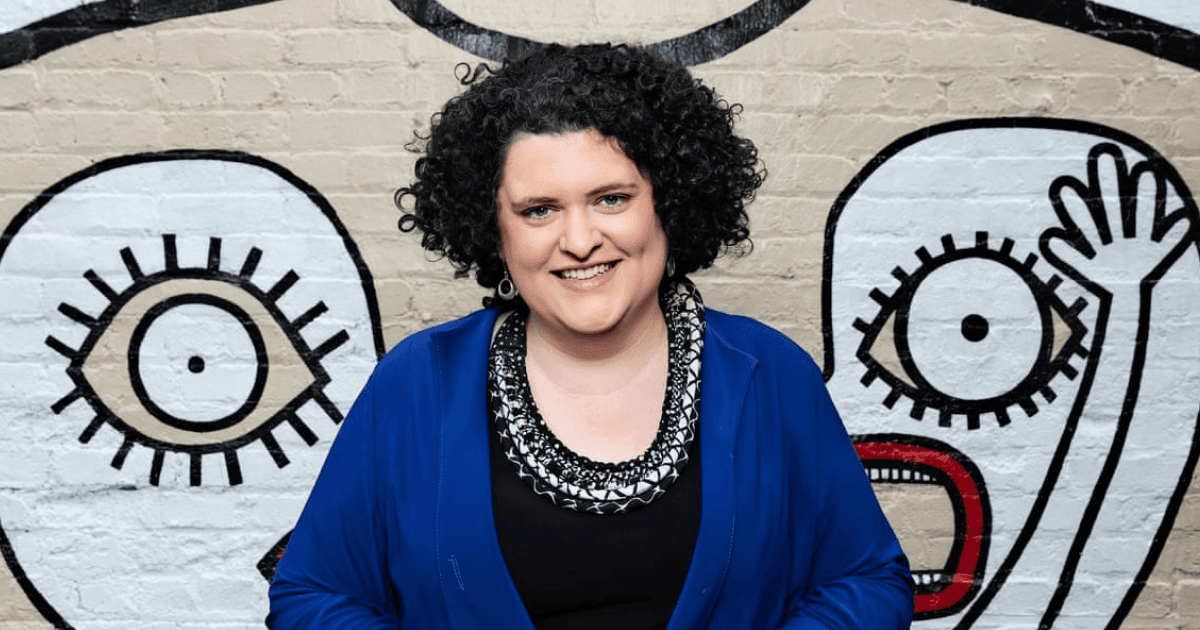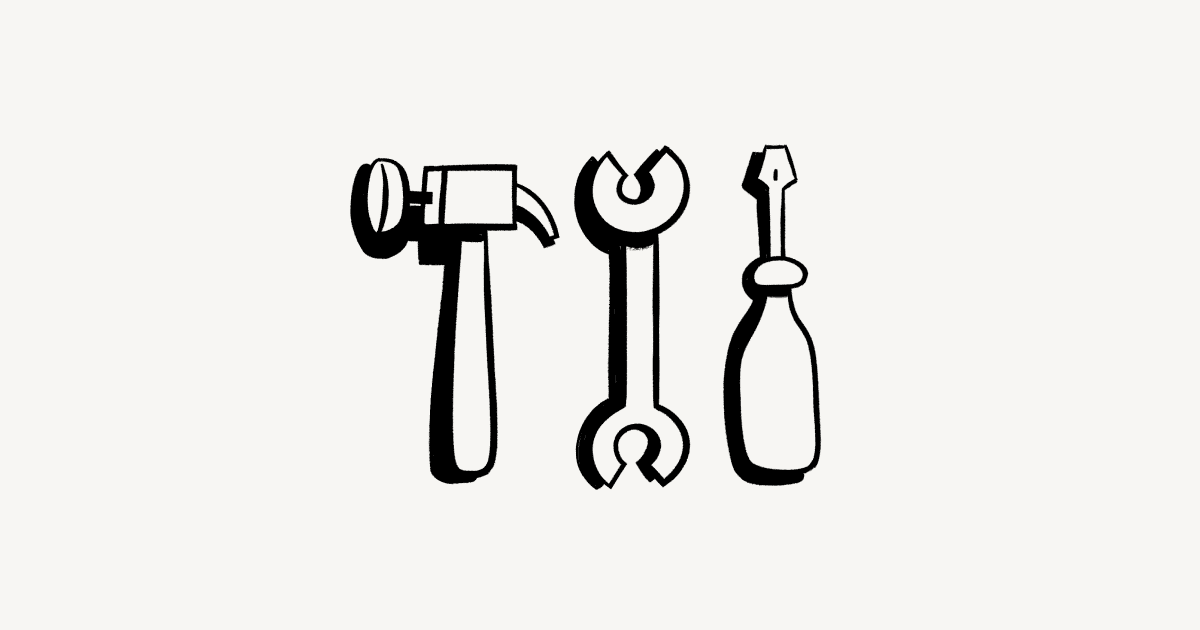Uh-oh! It looks like your ad blocker is preventing the video from playing.
Please watch it on YouTube
Howard Rheingold is a writer known for his work covering the development of virtual communities. He was one of the first authors, critics, and teachers to treat the internet as a social and cultural environment and pioneered new ways of talking about social media in his book The Virtual Community: Homesteading on the Electronic Frontier.
He went on to write numerous books about the power of the human mind and social media such as Higher Creativity, Virtual Reality, and Tools for Thought. These books pulled from his experiences being involved in one of the first virtual communities called the WELL, being the executive editor of Wired Magazine’s HotWired, and founding Electric Minds, another prominent early virtual community. More recently, Howard taught about virtual communities at UC Berkeley, Stanford, Rheingold U, and runs a Youtube channel covering his many diverse interests. He's also known for his spectacular painted shoes.
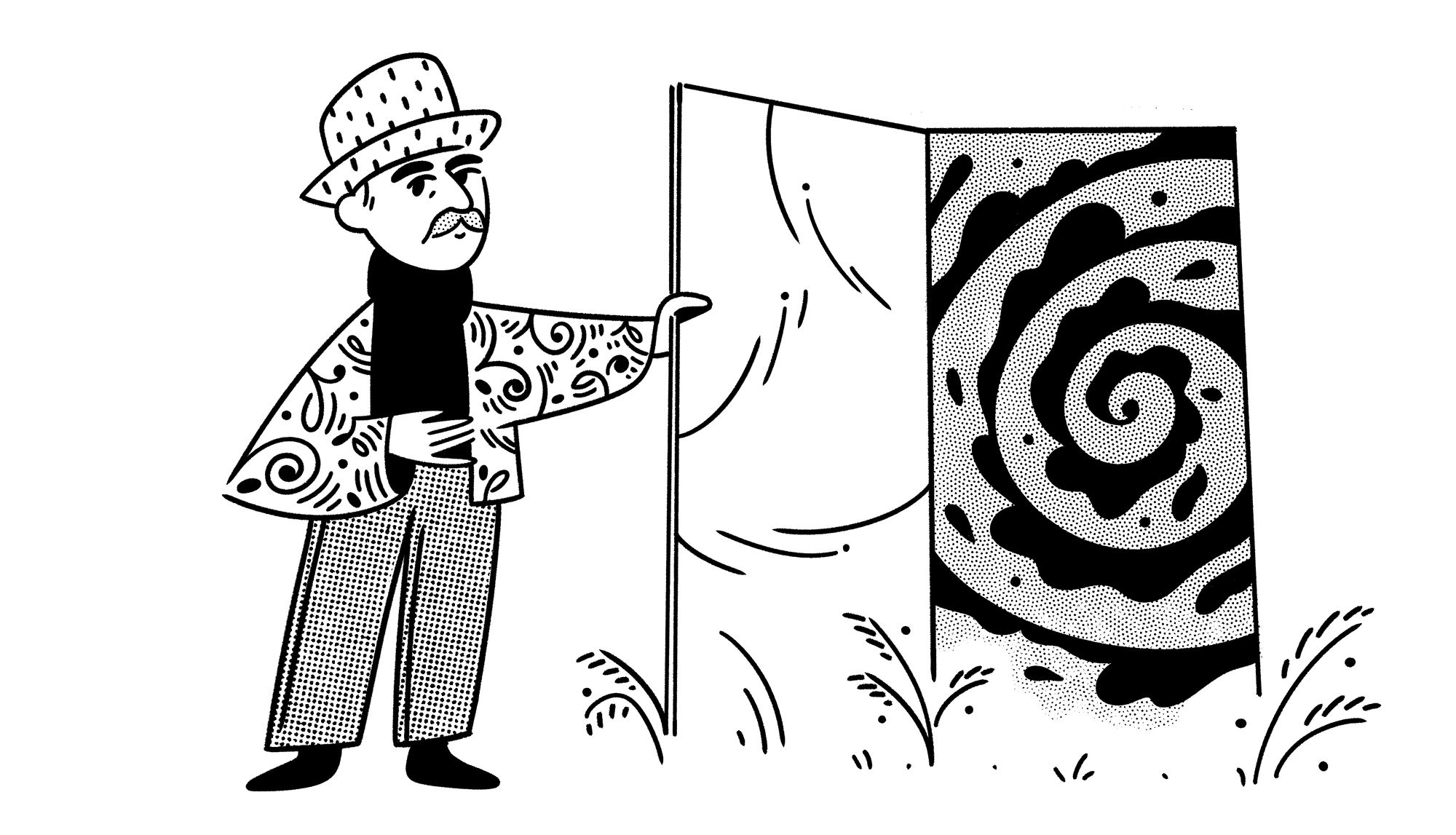
DEVON: Hello, I'm Devon and you're listening to the ninth episode of Pioneers. A series of conversations with the designers, engineers, writers and inventors who are shaping computing as we know it. Today, I'm talking with Howard Rheingold.
Howard first plugged into the internet in 1983 before the world wide web even existed. He was one of the first non-programmers to see computers as mind amplifiers rather than just computing or word processing machines and he coined the word virtual community through his experience as a member of the WELL, one of the first online communities and he's talked in depth about collective action and coordination online.
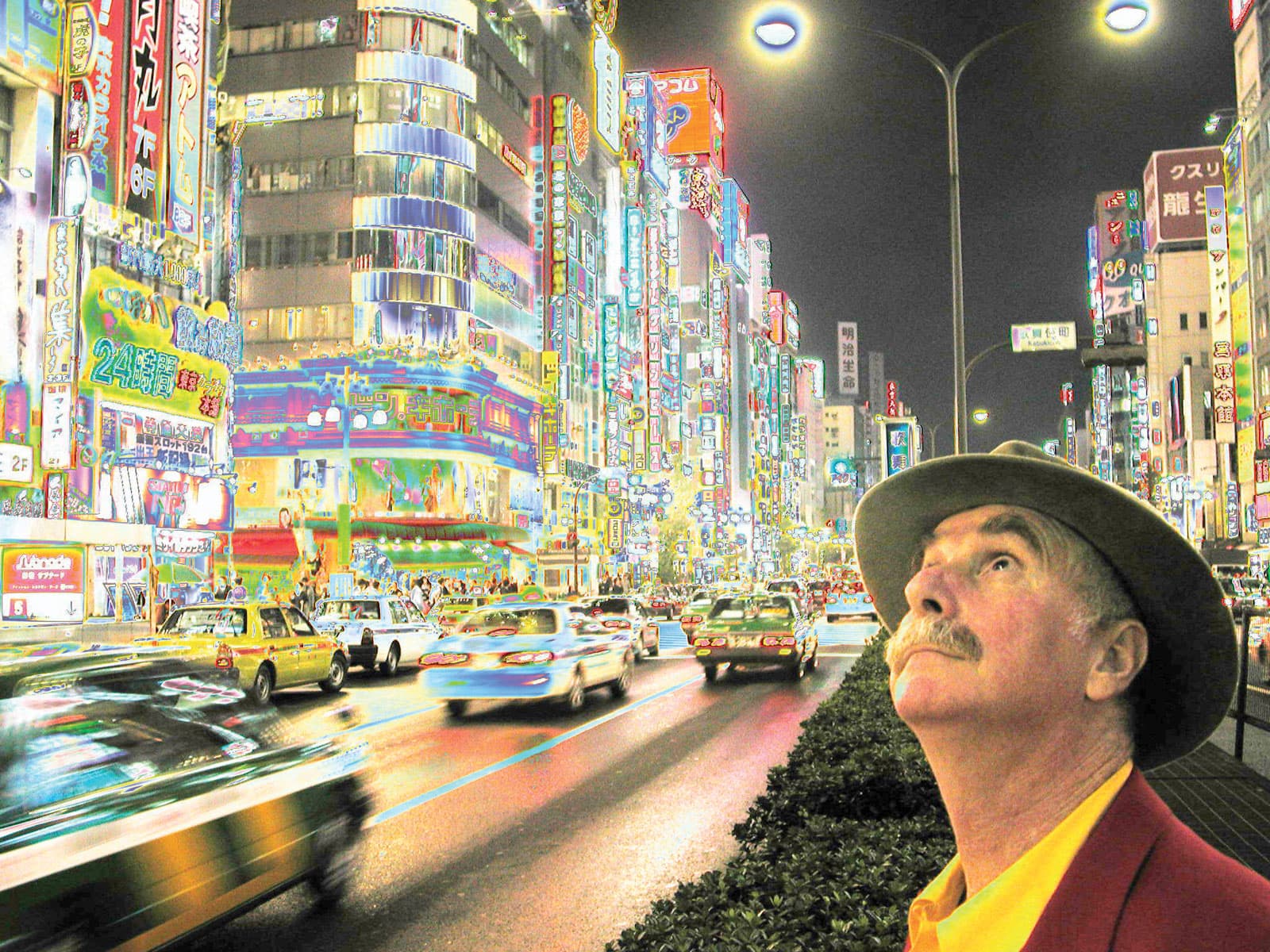
He's been on the web for so long — there's a lot of other stuff that he’s done on computers but that's just a quick taste. I'm sure you all will get a better of that as we dive in. Howard, thank you so much for taking the time to chat. I've been really looking forward to this.
HOWARD: Me too.
DEVON: One goal of the ARPANET design was to be resilient to nuclear attack — which is why the internet today has a decentralized packet switching infrastructure, enabling it to avoid a single point of failure. What were the social consequences of this decentralized design?
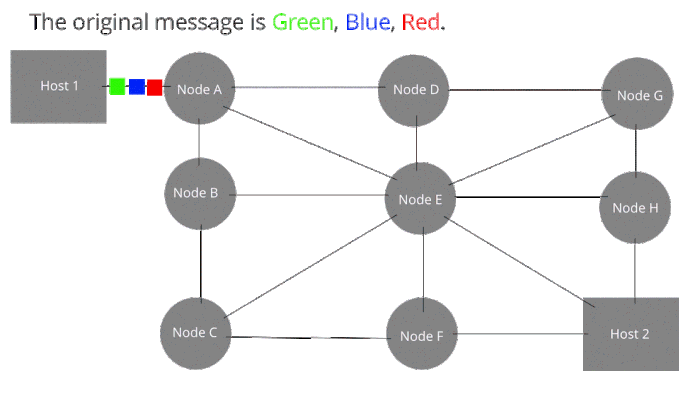
HOWARD: Well, I could be wrong about this but my understanding from my conversations with Bob Taylor was that packet switching had been invented by some people at RAND Corporation in order to create a decentralized way of communicating during a nuclear attack.
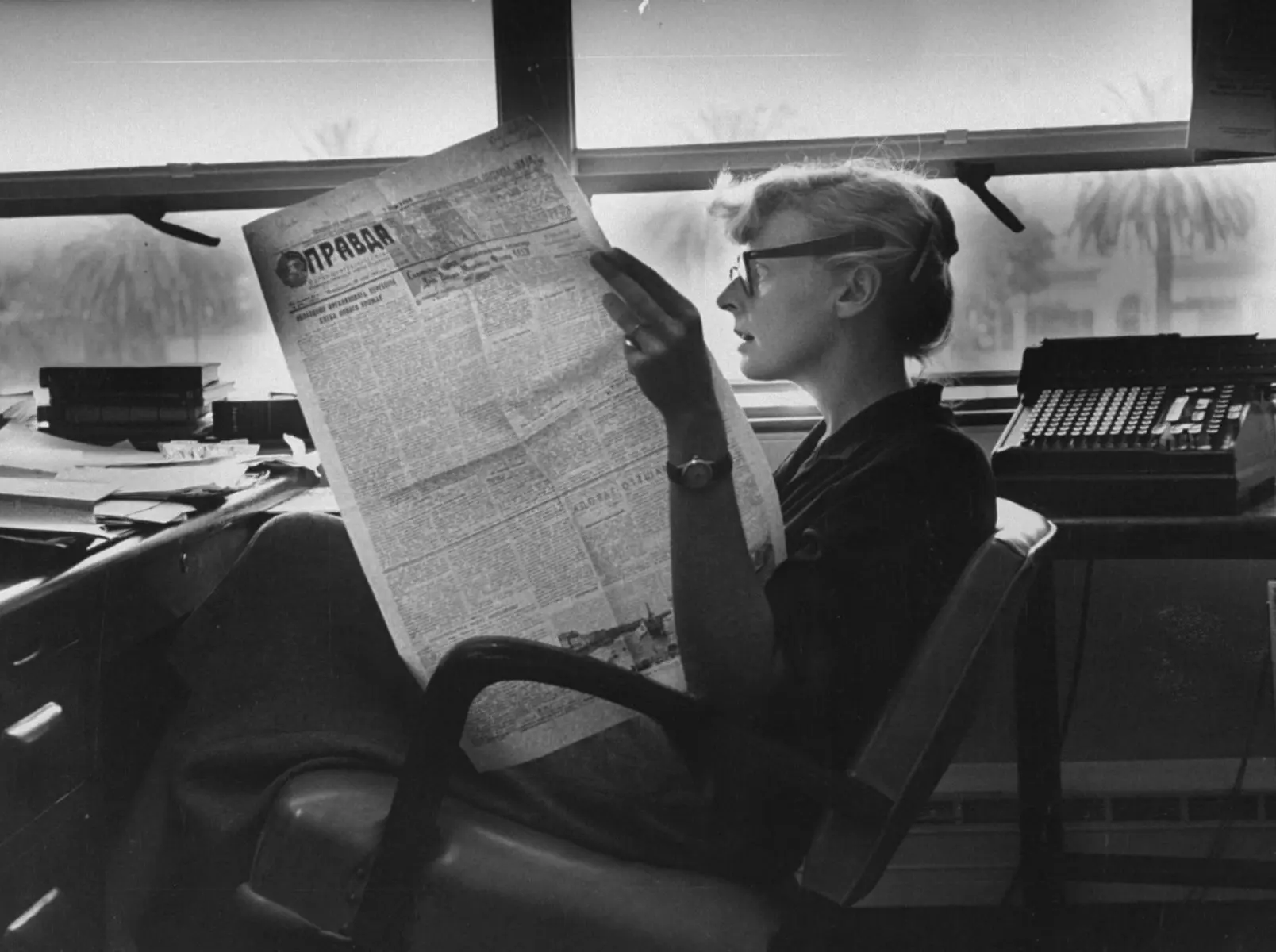
That was not the reason that ARPANET adopted it. ARPANET adopted it because, I guess it was AT&T or Bell Telephone, the switch network that existed at that time was the telephone network. As you remember old movies of switchboard operators making connections. A switch network literally creates a circuit between the listener and the speaker and what I was told by Bob Taylor was that the switch network people — the telephone people didn't believe that packet switching would work for this.
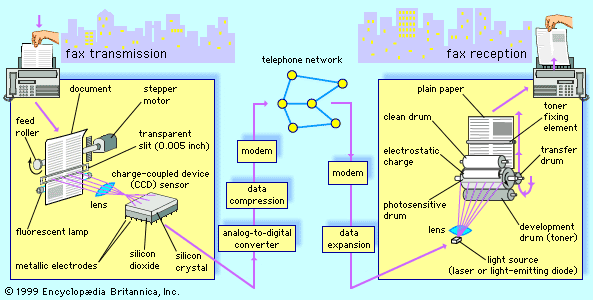
They adopted packet switching along with... the name of the fellow will come to me in a minute, but the network was really enabled by the understanding that they could create a computer on the network that would speak to other computers on other networks. I guess we call that a router these days. I'll have to tell you, I'm not much of a technical expert. Actually when I first started out writing, I talked myself into a job at Xerox PARC doing some writing there, they gave me assignment of helping some of their scientists publish, who were good scientists but were procrastinators on publishing and one of the first jobs I had was, two people, Jim White and Yogen Dalal. I think Yogen Dalal later became a venture capitalist.
They have a paper on the way that the packet encapsulated the structure of the network and while helping them write that, I spoke to them and we made recordings and I did transcripts and we talked about the transcripts. It was like being given a paper in Greek and a Greek and a Latin dictionary, and speaking neither of those languages. What stuck with me was the way that the structure of the packet enabled communications to move through this network very fluidly and that when a computer received a packet, it first would unwrap it, and the first thing it would read would be about where that packet was headed, and if it wasn't headed for that computer, it would throw it in that general direction of that computer, et cetera, et cetera. So packet switching is really an essential part of the ARPANET.
As I was told the reason for creating the ARPANET was that ARPA was sponsoring computer research at a number of different places at University of California, at University of Utah, the MIT and they met in person a couple of times a year, the computer science researchers and they began wanting to run the programs on one computer center from another computer center. So that's how they started. It was really to connect these disparate projects technically. What happened along with that was that along with a technical connection, the programmers started using the network to communicate with each other. I think the real genius of J.C.R. Licklider and Bob Taylor — who were running the project — was that instead of saying “you guys shouldn't be talking about science fiction,” one of the first lists was about SF lovers, about science fiction, you should be talking about your work.
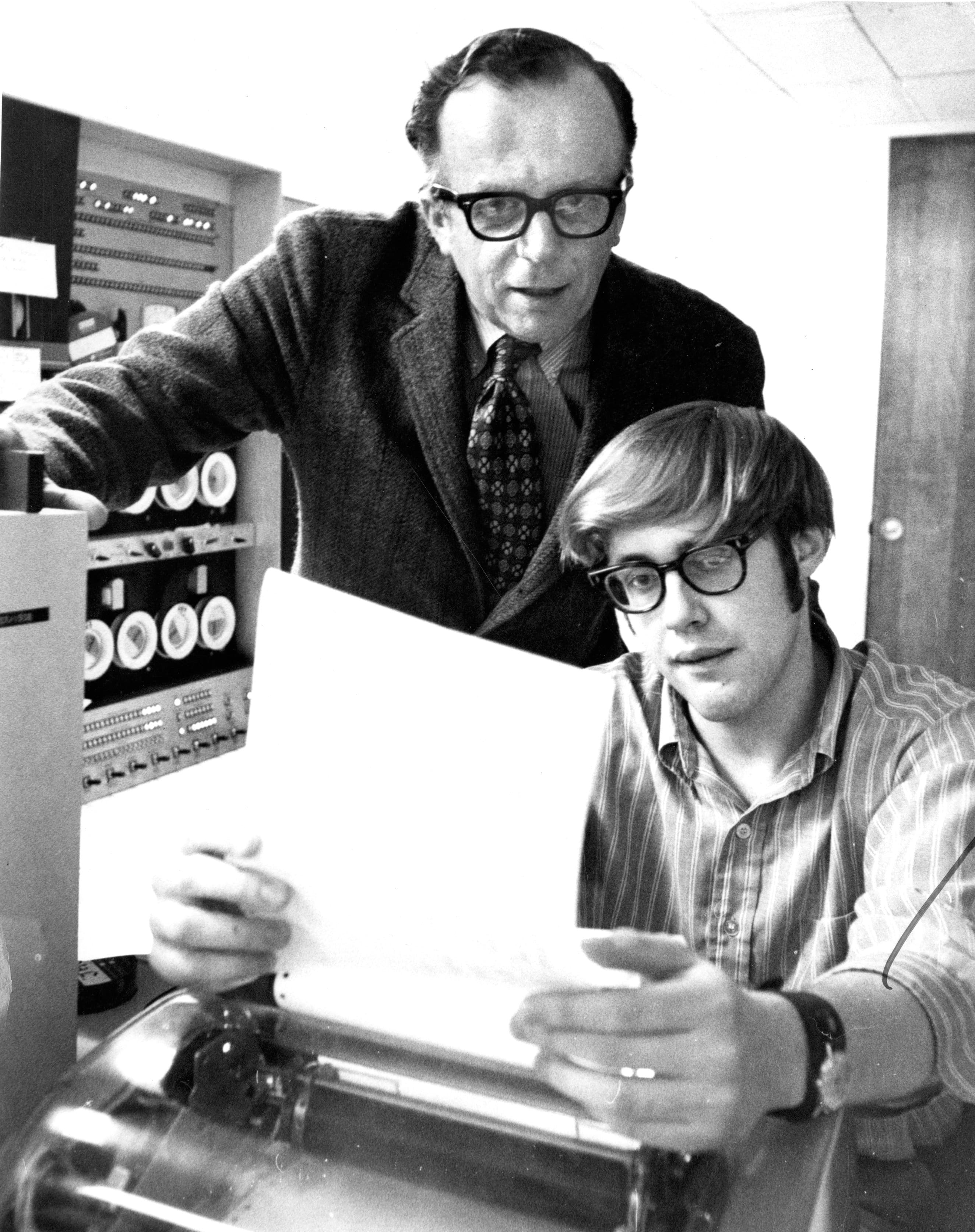
They understood that they were creating a new kind of communication network and in fact, they wrote a paper that I recommend called “The Computer as a Communication Device.” In fact, Licklider called it the Intergalactic Network and they mused about what would happen when most of humanity is online. I think that was like 1978 when they published that and then that will-
DEVON: Well, definitely, you have to include a link to that in the transcript here. I'm sure a lot of people will want to read it. There's a quote that I think you quoted in something that you wrote from John Gilmore where he said, "The net interprets censorship as damage and routes around it," which I thought was like a very evocative way to describe the architecture of the net. How has that played out in practice and what sorts of interactions have people had as a result that maybe wouldn't have been possible in a Bell Telephone centralized system?
HOWARD: Well Gilmore disavows being the person to have invented that and it's unclear who actually invented that phrase and I think it's pretty clear now that it turned out to be wrong. I mean, you've got the Great Firewall in China but the end to end principle, that any node on the network can communicate with any other node on the network, really led to a lot of innovation that led to the web and the online culture we see today. I thought of it, when I first started in terms of the social dimension, which is that you could communicate with someone who shared a particular interest, whether you knew that person before or even whether they were on the same side of the planet as you and that is enormously important today. The example I often use is if you have a disease that one in a million people have, there are 2000 others and you can connect with them.
We're also discovering that if that rising tide lifts all boats, it lifts the pirate ships as well as the hospital ships. So you can have medical support groups and you can have Nazis, who are able to connect with each other in ways that they weren't able to connect with each other before — I think that's one of the most important aspects of the end to end principle. The other one being that you don't have to ask permission, and you don't have to rewire the network in order to innovate. As long as whatever you're doing on your node, you can take your computer and plug it into the network, and disseminate the worldwide web, for example. If it speaks the protocols of the internet, if it moves the packets around, technically the way they're supposed to, then you don't have to get permission to do it.
The Google guys didn't have to ask permission to create a new search engine from their dorm room and Tim Berners-Lee didn't have to rewire the web in order to disseminate HTML. So I think that those are the... to me, the two most important aspects of the technicality of what they call the end to end principle, which I think illustrates a way that a technical architecture can result in enormous social changes.
DEVON: Absolutely. I mean, when I first went to college, I was planning to study mechanical engineering but as soon as I took my first programming class, I realized, "Oh, man, this is the real stuff," because I realized that I didn't need permission to do anything. I could just put up a website and it would just start working and maybe no one wanted to go to it and that was my problem, but I didn't need any permission to make it happen. So I quickly changed my major because of that feeling of "man, it's just me and my computer," and then suddenly I've like, potentially done something that tons of people can use or not in most cases, in most projects.
A lot of people have forgotten, or never learned, that the web as we know it was really created by people like you and I who just put up our websites and link to our friend's websites and put up pictures of our pets.
HOWARD: It was not a corporation. In fact, if you said, I plan to make money on the internet before Netscape, people would laugh at you and certainly, it wasn't the government. The government enabled the technology and supported the creation of the technology and enabled the transition of the National Science Foundation network to the internet, but it wasn't really... the government didn't create the web.
DEVON: What are the pockets of communities that still view the internet in those ways? Where do you see that spark of people still viewing the web as something that can be co-created, as opposed to something that Facebook has to make a web page for you
HOWARD: Well, I think that's one of the big issues of the day is, when you're talking about the tragedy of the commons, or the commons, there's the enclosure of the commons, the literal common land that the peasants were able to graze on in England was fenced in and if you tried to use it, you were shot or hanged and that's called enclosure. I feel that Facebook is trying to enclose the internet. They're trying to make people believe that it is the internet, but we've got all kinds of conversations going on in all kinds of places. Just Reddit itself is an ecology full of communities, of people who share a particular interest. So, it's like, the big companies kind of own the loaf but there's lots of, lots of raisins inside it and a lot of little communities inside it.
I mentioned medical support communities and I wrote about that back in 1987. It was surprising to us in the WELL, when we formed a support community for a parent whose son had developed leukemia. Now, of course, it's not surprising. I mean, who has not Googled their symptoms and people who have diseases or caregivers who have diseases, they know how to contact support groups online. The same thing goes for engineers, we probably wouldn't have the internet, as we know it today, if the companies then in Silicon Valley had realized that their engineers were using the network to talk with engineers at other companies and solve problems together — to share lore and knowledge. So I think sharing lore is another thing that people do without even thinking about it.
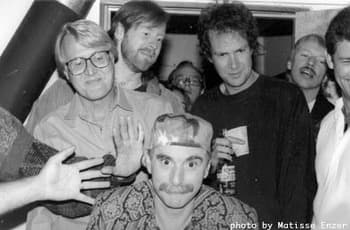
I think there are a lot of these threads that connect people either through their personal lives, like medical support groups, their professional lives, sharing lore, long before LinkedIn. That was how you found out about where jobs were.
I think that when the web first started, everybody who was putting up a website, understood that we were creating it. Nowadays, people who were born into an age where Facebook dominated, I don't think they understand that they have that capability that anybody can innovate and create something new.
They can create a new Tumblr or they can create a new Reddit, as people have done. Of course, things spring up. New ways of communicating spring up, and people invent new art forms, new cultural forms around them.
TikTok didn't exist a few years ago. I can remember when video online was extremely slow and only nerds used it. So I have a lot of faith that it's sort of like water will always find its own level if there's a new way to communicate. People will find it and invent new forms that quite often, in fact, almost always, the people who invented the technical means of communicating did not have in mind.
DEVON: One thing… I have this ongoing group chat with my friends on Facebook Messenger and something we talk about on and off is how it feels very impersonal like in Facebook Messenger, iMessage, WhatsApp, all of these, they all look more or less the same for every group. That has its uses because it means that you have a standardized interface and like everyone knows how to use it, but on the other hand, it doesn't really feel like it's your place. It feels like you're living and communicating in this institutional setting, as opposed to this shared space that you create together, like a studio you might have with your friends. So something we daydream about is often like making our own messaging chat just for ourselves, not to sell or something, but just for ourselves, for our own uses, to make it almost more like a scrapbook.
This is something I'm always tempted to go off and build but actually, it’s hard to build a chat app that is good and useful. So I've held myself back up until now, but I think the more I think about it, the more I'm going to have to do it one day, I think.
HOWARD: Well, I wrote a short essay on Patreon in response to this idea of Facebook enclosure. If you want to start a forum or you want to start a chat group, or you want to start a mailing list, the tools are there. You can create your own communities. People can make their own substitutes for Facebook, for their small group. I don't want that to be lost. I don't want that skill of just taking what's available online and rolling your own. When Slack came along, a lot of old timers said, "Wait, this looks like an IRC. It's IRC with a little bit of fanciness and interface." I think, certainly, it's proven to be valuable and taking the technical skeleton, the things that have existed for a long time and making them look a little friendlier.
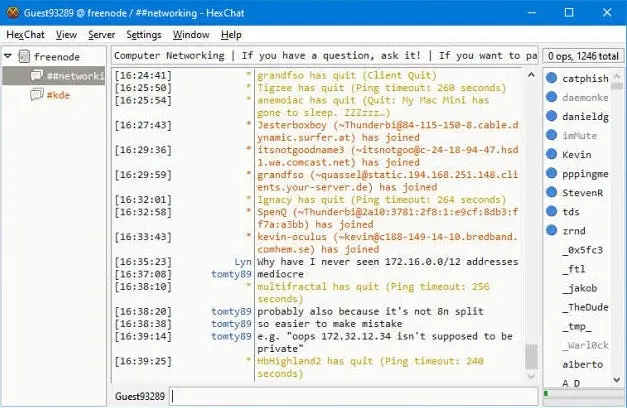
DEVON: Yeah. So on that note, actually, how did the internet culture change when the World Wide Web was invented in 1989?
HOWARD: Well, you have to remember that the internet was almost entirely text. There were people exchanging images, most of them pornographic on Usenet and then had to do with transmitting long passages of gibberish that you had to decode. So, the idea that you would have pictures or video or sound was kind of ... it was so distant as to be invisible to most people. I think people who understood where Moore's Law was taking technology, knew that eventually the internet would be multimedia. In fact, Alan Kay in 1977, the Scientific American, in an article called “Microelectronics and the Personal Computer,” talked about the internet being a meta medium.
The ability to link ... Of course, hypertext has been an idea for quite a while since Ted Nelson and Doug Engelbart. When you put the multimedia together with hypertext, you get a basis for all sorts of things. The idea that people would use the web A, to make money really exploded after the internet, after the Netscape IPO. I was involved with starting HotWired which was Wired Magazine's online venue where we put ads.
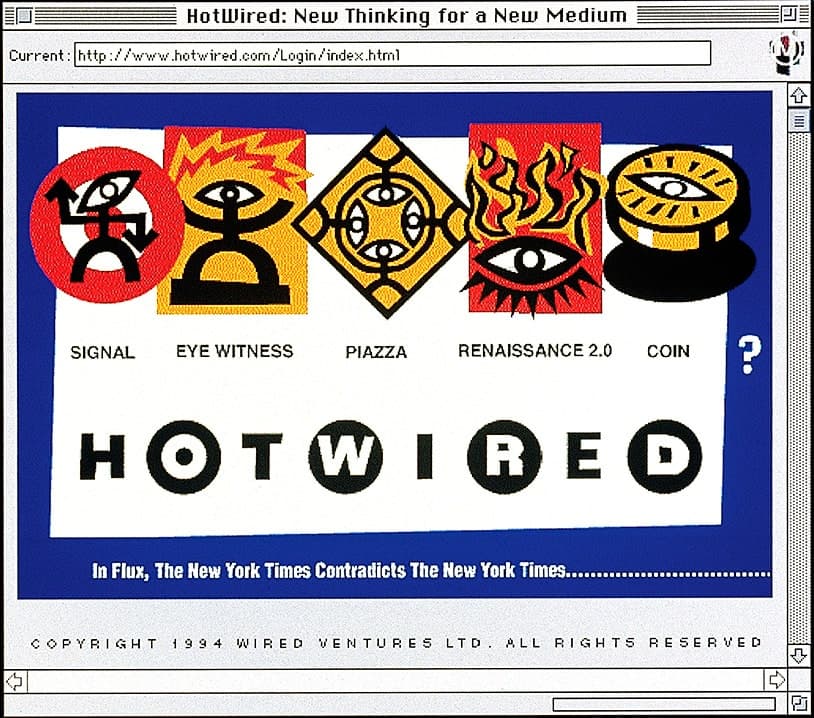
I think in just a short period of time, I don't know whether it's hours or days, more video was uploaded to YouTube than in all the history of broadcast televisions. We knew that we would be able to manipulate images, but nobody really dreamed of Photoshop when we saw MacPaint. So I think that the technology enables a kind of an accelerated evolution, people saw, "Oh, we can put a picture up? What can we do with pictures? Oh, you can upload videos? What can we do with video?" Of course, we've seen this, that's gone in so many different directions, and not all of them healthy ones.
So, again, sometimes people ask has the web become... good or bad? I think, well, are humans good or bad?
At the point where you've got a significant portion of the human race online, and not just technical experts and scientists and academics, you're going to get the full spectrum of human behavior. Some of that is not so pretty and previously, you could hide a lot of that not so pretty stuff.
It wasn't visible to everybody but again, every node can talk to every other node. If you wanted to seek out on the ugly stuff, or if the YouTube algorithm believes it will cause you to be more engaged, you can swiftly get involved with some very nasty stuff online. So you asked about culture, you can't really leave that out. I think, the inventiveness... I understand that pornography has driven new technologies for a long time, that not long after the printing press became widespread, there was pornography about the French royalty. Again, the video recorder was driven by people who didn't want to go to the store to buy porn. So, I think humans are a mixture, all humans are a mixture, all humans are a mixture and so is our culture and so is the online culture. I think the online culture does amplify some things and things like, for example, the YouTube algorithm does drive people towards unhealthy content.
DEVON: What you said about evolution of culture online, and evolution of technological advancement online has got me thinking, I think one of the reasons why the evolution has sped up on certain dimensions is because software is so malleable, you can kind of like poke at it and fiddle with it and if it breaks, it's actually fine because you just like rerun it or you press undo versus, I don't know, if you want to innovate on building a house or something, if you mess up, someone might die. So I feel like it makes software and software tools much more playful, because you can just kind of poke at it until it does the thing that was interesting, as opposed to having to worry about the consequences. Now, certainly there are consequences and you wouldn't want the software that, I don't know, accepts credit card payments to be fiddled with in that way.
With Photoshop, you can just kind of like apply some filter over something or some algorithm and be like, "Oh, wow, they made a really interesting visual effect on this piece of artwork. Oh man, it didn't look good at all. I'm going to undo it."
HOWARD: There's a French word for that, they call it bricolage. A bricoleur is someone who just throws a lump of clay onto the table and messes with it until a form emerges. In my experience, when you're trying to create something, there's usually two different approaches to it and sometimes quite often, you have people who embody both approaches. There are people who want a blueprint and a timeline and milestones and objective measures of every step. There are people who just want to mess with this part of the code and see what happens. I think the most interesting developments are when those two mindsets collide and they have to find a way that they can work together. Either side can do things that the other side can't and if they have to agree on something, then they need to find something that fits both ways of doing things. Certainly, we wouldn't have the web today, if it wasn't for View Source.
I remember, not being a coder at all, that I could find a webpage that did something I really liked and I could view source and I could copy that source, and I could find all the places where it mentioned that specific website and just change the mention to my stuff and bang, I had something there and I think that ... one of the reasons that the web has spawned so many different cultures, is that ability to build on what other people have done, even if you're not entirely knowledgeable about what it is they did.
DEVON: Yeah, definitely. I remember some of my first experiences programming were WordPress sites, and I had no idea what was going on with any of it but I did know that like, if I saw the word red and I wanted to replace it with the word purple, suddenly, my page would be purple and that was cool. From there, you start pulling a thread and you start realizing like, "Oh, the place where it says on click, maybe it has something to do with clicking," and you pull the thread until it all unravels in a good way.
HOWARD: Well. The great thing about WordPress is that there's a very large community and if you've got a problem, or you have an innovation that you want to incorporate the skill of finding who knows what is really important. In terms of programming ... I'm sorry, I'm slipping on the name of it. The site, where if you've got a programming question, you put it up and-
DEVON: Stack Overflow?
HOWARD: Yeah, Stack Overflow. How did programmers work before Stack Overflow? I mean, think about that. It's again, that ability to connect with a person, even though you don't know who that person was. In this case, it's who is the person who's encountered this particular programming issue? My God, you put it up... not only do people answer your questions. In most cases, they've already answered the question and I think that ability to lean on a community of people who are not only knowledgeable but willing to share.
I think their willing-to-share part was really built in, not to the technical infrastructure, but to the culture that developed out of the early internet, in the early web.
DEVON: This is something I find, even I surprise myself with where I contribute to this open source tool called Logseq and I sometimes just like sit in their Discord, and when I say sometimes, I mean a few days a week, I'll just sit in their Discord channel, answering questions about it and I don't know why I do that. It's just fun, I guess but I would not expect that I would spend my time that way, if that makes sense, from an outside view, but I kind of get pulled in and I feel very happy when I get to explain things to people.
HOWARD: That is a key question. When I was writing my book, “The Virtual Community” in 1991 / 1992. I found it very hard to find academic experts who could answer my questions. I did find a graduate student at UCLA by the name of Mark Smith. I asked Mark, "Why do people spend time giving information to other people they don't know?" He said, "Knowledge capital, social capital, and communion." I think that, Debbie, he's right. In fact, when I taught social media issues and social media literacies to college students, I had a week that was devoted to social capital online. Most of these formal terms I discovered after trying to find out what people said about what I knew was happening. I became excited about life online, when I discovered that, if I freely gave out information to people who are looking for it, I would get 10 times as much back when I asked for it.
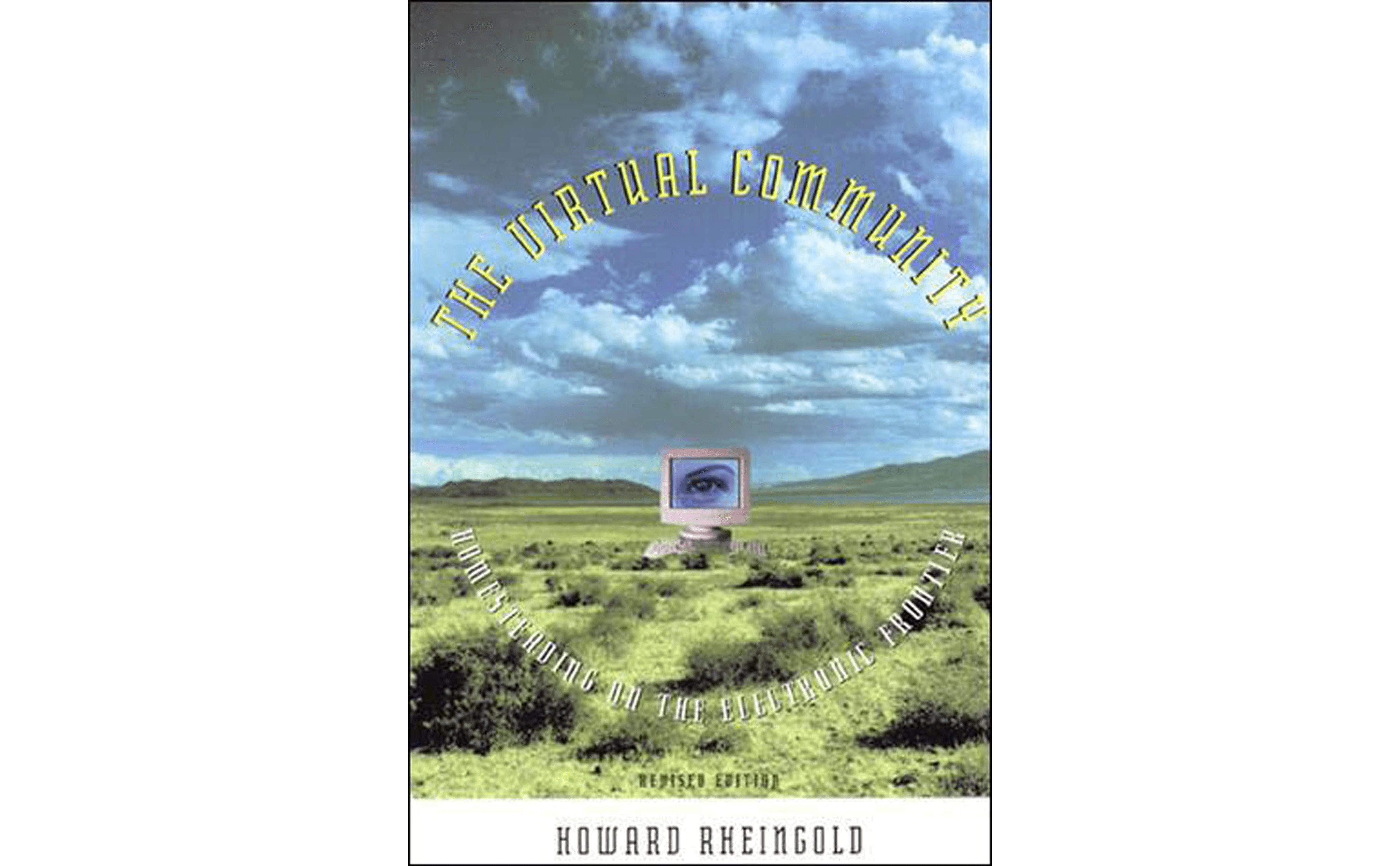
That's essentially, social capital. It's people accomplishing things together outside the formal frameworks of contracts or laws, and it's essential to human life. With farmers, if you break your leg and it's harvest season and then, if you have good relationships with your neighbors, they will take in the harvest. The classic is the Amish barn raising? So I think that's another essential part of online culture and reciprocity is part of it, as I discovered it's called diffuse or indirect Reciprocity. So you have a question. I give you the answer, even though I don't know you and you may never reciprocate to me directly, but we both belong to the same community in which we know that others are going to answer my question, even if they don't know me. In fact, there's a deep principle of how human cooperation has come to evolve.
So I think that there's both a technical architecture and some principles of the way humans operate, that have combined to create things like that. Again, I learned all these things because I was interested in why does it work this way? There was a sociologist by the name of Mancur Olson, who wrote a book called “The Logic of Collective Action.” That was considered the last word on the subject, in which you pretty much declared that public goods, things that no one in particular is responsible for, like I don't know, keeping the sidewalk clean, are not going to be created by groups of people who are not financially compensated or related to each other, or are very large at all. Of course, open source came along, Wikipedia came along and the web came along. Those are all whatever the opposite of an existence proof is, it proves that the logic of collective action needs to be revised, that people will create public goods together.
There's a book by Steven Weber called “The Success of Open Source” in which he actually dealt with some surveys of open source contributors. The reasons I may not get this exactly right, but the number one reason was learning how to program. The number two reason was monetizing their ability to program and number three reason was contributing to a public good, and the fourth reason was sticking it to Microsoft. So it turns out that when you're dealing with public goods online, having a couple of characteristics makes it more successful. One of them is a number of different motivations for doing it. Another one that works very well for open source programming and Wikipedia is self-election. I may be obsessed with a particular kind of South American ant so that's what I'm going to decide to write about on Wikipedia.
I think, interestingly, I am a programmer and there's a new printer and nobody has a driver for it. So I've got to create that driver.
I might as well contribute that driver to the public, so that other programmers who need to connect to that printer can use it, but also I'm signaling that I'm a cooperator, and when I need help, someone will help me. All of this is enabled by the technical architecture, but it's really driven by human social factors.
DEVON: Yeah, I think the self election is a big part of why people are motivated and it is, I think, a very powerful positive force. I think it has some gaps though too, which is like some projects are just more charismatic than others. So I imagine that the Wikipedia page for kittens has probably been updated more often than snails, I don't know. I haven't actually checked if that's true, but I would had sort of guessed and there's probably some much more obscure animal that I've never even heard of, that very few people pay attention to, that has very little information written about it or similarly, with open source software, I think a lot of software tools get a lot more attention and work on them, when they are at sort of the top of the stack, the UI layer, the part that actually interacts with humans, where people actually see it, as opposed to the transitive dependencies that that software might rely on.
So I think that is one of the limitations of that, but it doesn't make self-election bad. It just means that we need other types of reasons to work on something that fill in those gaps.
Who are those people in the early days of the Internet, and then of the World Wide Web?
HOWARD: Well, the creation of the internet, a lot of it was done through email. They had, they called RFCs, requests for comment. So people would, as you know, programmers have strong ideas. They would argue about things technically. There was a fellow who kind of ran the mailing list, who died a few years ago by the name of Jon Postel, and everybody trusted him to not be in a particular faction. So I think the philosophy behind the people who created the internet was rough consensus and running code. So rough consensus is important, because anyone who's participated in a consensus based activities that are strict consensus, finds that they go on and on and on.
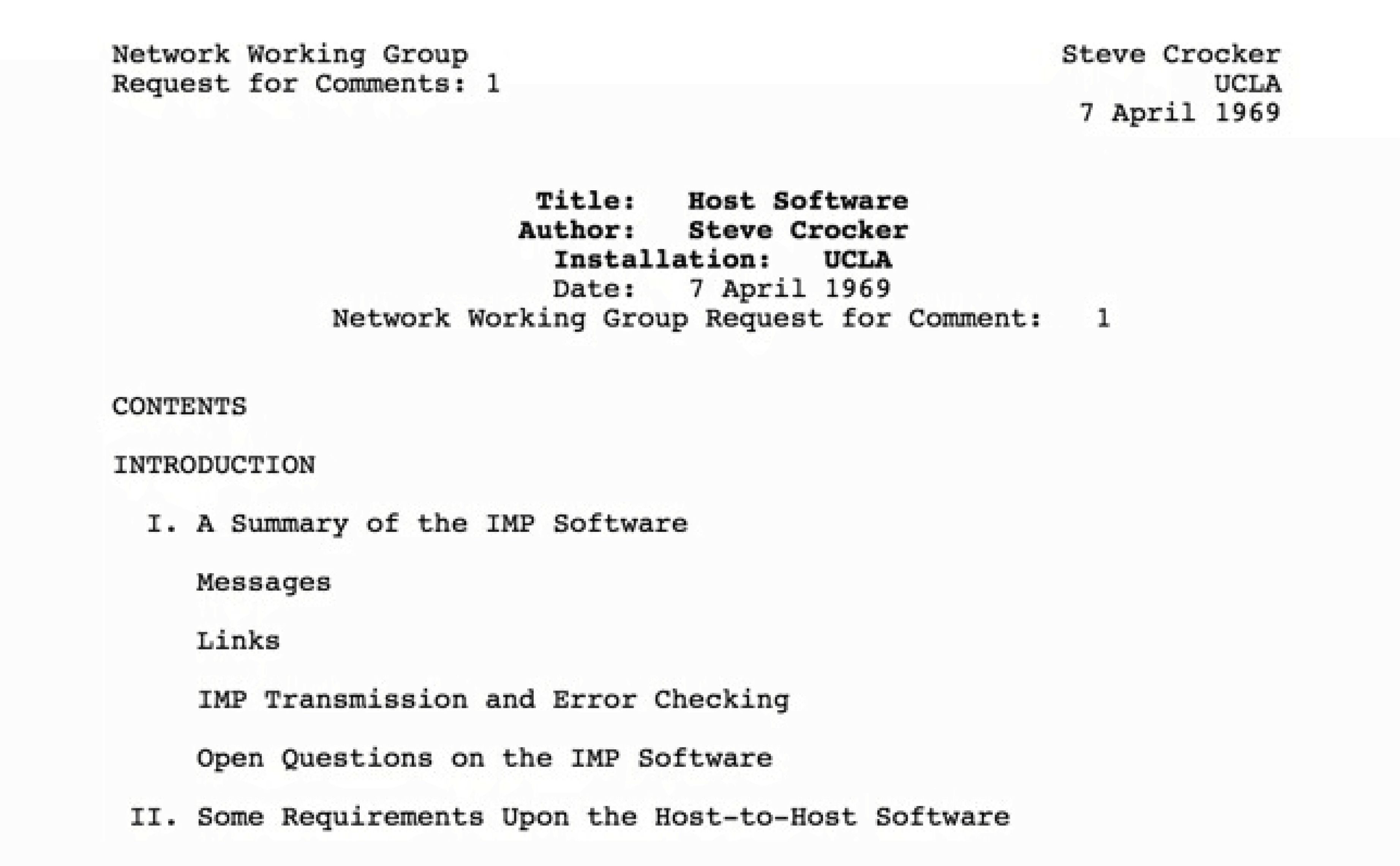
There's always somebody who's going to stop it. Oscar Wilde said, socialism, it requires too many evenings, consensus requires too much meta conversation. So having someone that everybody trusted was really important, I think, to that.
DEVON: It's really useful in a group in advance of having to approach big decisions as to sort of make the meta decision of who will just make a call when it comes to it, is an incredibly valuable thing that you can do. because otherwise, if you don't do that, and you all respect each other and want everyone to agree, then you end up in a situation where you don't do anything at all.
HOWARD: I think it's important, to go back to your original question, to understand that it was really the extraordinary leadership of J.C.R. Licklider and Robert Taylor who were at ARPA when all of this business started. Taylor was I think in his 20s and had been a NASA administrator. J.C.R. Licklider was older and he had done some more work at MIT and so, when ARPA was created, they had this little office called the Information Processing Techniques Office. It was really a tiny thing but he understood where interactive computing was going and he hired Taylor and they did things like fund Doug Engelbart and they funded Ivan Sutherland, who invented computer graphics, who later succeeded them at ARPA and it funded Alan Kay. There came a time when the US Congress said, "This ARPA, that's supposed to be for the Defense Department." This is during the Vietnam War.
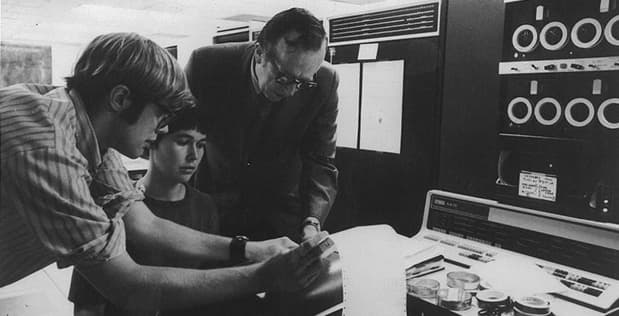
"Now, if you're not working on things that the military can use right away, we don't want you to do it." So a lot of people quit, and Bob Taylor was hired by the Xerox company to invent the information architecture of the future. They gave him a hundred million dollars and 10 years with no interference, and he went and hired all of those ARPA engineers, who were all pretty young, graduate students from the University of Utah, University of California and all over the place and brought them to Palo Alto and put them in the same building. The architecture of the building was organized in these pods where if you had to get from one place to another, you had to go through a place where people were having conversations. They had beanbag chairs, all over the place, and whiteboards all over the place.
These were people who had been used to working with the old technologies of getting on the airplane or getting on the train and getting together and working with blackboards. Now, they had this integrated facility, and I think that it would not have happened if it had not been for the extraordinary trust that people have in Bob Taylor from that ... and these were all very strong personalities. If you've ever talked to or read anything by Alan Kay, you know that he was a very strongly opinionated person. There were a lot of others there as well. They, of course, built on the work of Doug Engelbart and they and they were the ones that led me to Doug Engelbart. If you're interested in this part of the history, Bob Taylor and John Markoff did a video at the University of Texas at Austin a few years ago, that's completely fascinating.
Taylor is a Texan, and he has this kind of down home way of talking about things. He's got lots of great stories about where the bodies are buried. So that's where I came into the picture, was that I had been a professional writer or trying to make a living as a writer for some years, and I was tired of typewriters. You type out a page and then you mark it up, and then you have to retype it. It's a pain, and I heard a rumor that you could use computers and screens and move words around without having to retype them. I went to Apple, which at that time, was in two buildings. I talked to Jef Raskin, who later was kind of the initiator of the Macintosh project. He said, "No, you can't really do word processing on Apple IIs because the hardware only supports upper case, because the founders believed that people are almost exclusively going to use these computers for playing games, and writing code in basic."
So that's when I came across Alan Kay's 1977 article and I thought Xerox PARC must be the coolest place to work, if you're interested in the future of this technology, and I talked my way into a job there and part of that job was interviewing people. When I interviewed Bob Taylor, he turned me on to Doug Engelbart and when I met Doug Engelbart, that's when I really understood that this is not just a far better typewriter. This was a mind amplifier — or as he called it augmenting human intellect and that the future of mind amplifiers was going to explode as the technology did. That's what Alan Kay said back then. Everybody knows where Silicon is going. So if you can put a pixel on a screen, not too many years, you're going to put a million pixels on the screen.
You're going to enable them to move around. So what does that have to do with how we think and communicate? I still believe it is the most important aspect of technology. Engelbart had a hard time getting people to listen to him. It took him 10 years; he had this vision, actually in the 1950s of people using screens and computers to collaborate, but UC Berkeley said ... and there were about four or five computers in the West Coast then. UC Berkeley said, "Well, you can study computer science here, but don't talk about these mind amplifiers. It's crazy." He went to Hewlett Packard, and they said that they were never going to get into digital technology. So finally he understood that people did not understand that computers, which were used exclusively for scientific computations, and business data processing were, as Alan Turing said, many years ago, universal machines.
He said, you could get them to do lots of other things. So, he wrote that paper on augmenting human intellect which I taught, to every class that I taught, which I still recommend to people and particularly engineers who are trying to build things today, because they call it the unfinished revolution. Although the paper was published in 1962, everything that he foresaw has not really come to pass yet.

DEVON: What are the gaps?
HOWARD: Well, he had this framework he called HLAMT, humans using language, artifacts, methodology, and training. In the years after that, Engelbart often pointed out that the artifacts, the computers and the networks, evolved to something literally millions and billions of times more powerful, but how much progress has been made in the language methodology and training part of that? I think that applies to the future of thinking tools. I think it's going to have less to do with the technology, and more to do with how people learn, and how people learn to use it, and how they learn to extend their minds, I'm sure you have the same thing I do, which is, I offload an awful lot of my memory to Google and its upward brain. I use it 100 times a day. Sometimes, I can't remember something exactly but I know a couple of characteristics of it, and I search on them and I find it.
The book ["The Extended Mind" by Annie Murphy Paul] goes into a lot of detail about the three aspects. One is the body and some fascinating scientific research about, for example, stockbrokers, don't even know that stockbrokers who can hear their heartbeat. Some people can hear their heartbeat, some people can't. That people who are more tuned in to their bodily sensations make more successful decisions, even though they don't know that that's that aspect of it. So the body has part of it. Gestures are a big part of thinking, for example, so the body is part of it. The environment is part of it and then again, the technological extensions, but like the computer and the network. So I think we're only really beginning to learn the literacy of mind amplification, the tools are all there.
DEVON: Yeah, I mean, I think one thing that I've only come to really appreciate in the last few years is how physical thinking is or should be, in the sense that I think one of the things that attracted me to software, to computers, to the internet was how abstract in my head it felt. That was really, really cool, because I could have a whole little world in my head, but I've come to realize that actually, a lot of the intuitions that you have for how something works are physical intuitions, and also having a space that is sort of an extension of your mind or almost… not a visualization but, I'll give an example. I have a friend who has his own personal gaming arcade. So he has like a separate apartment that he runs out of and he has DVR machines, pinball machines, that kind of thing in there.
This space, you go in and you just feel like you're inside of Roger's brain. It's awesome and it's something where as soon as I saw it, I was like, "Oh, man, I can see how this place helps him think." It helps him think the types of thoughts he wants to have. It's also a very fun place to be. So something I've been worrying about is, I think that a lot of the tools that we have are very contained within little rectangles and they're very powerful, but I think there's probably limitations there. A lot of the greatest scientific discoveries have happened, because of scientists who sort of felt things in their body. I've heard stories of Feynman who was a scientist at Los Alamos, like rolling around on the ground, like grappling with problems and like feeling it in his arm and stuff like that, which I don't think I understand physics enough to understand exactly what he was going through.
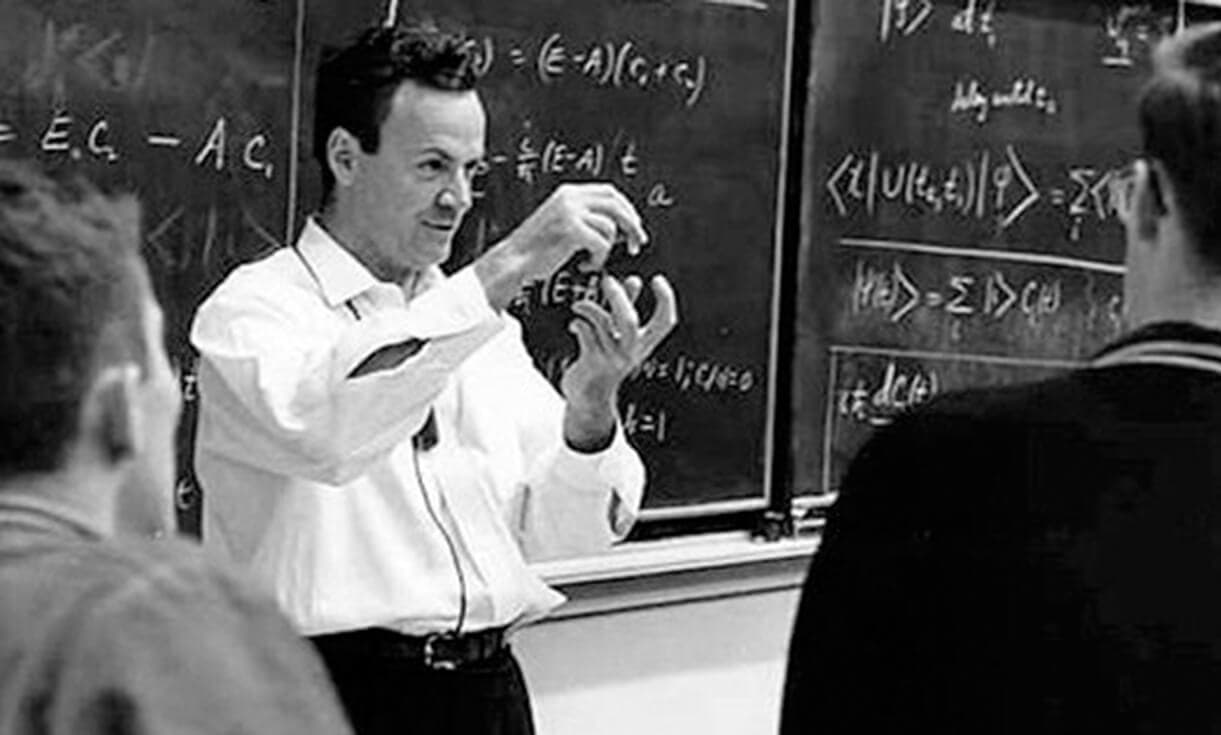
It helps him solve problems and helps him wrap his mind around it. So what are the types of things that you've taught to your own daughter that have helped her? How do you approach teaching these skills to your own daughter?
HOWARD: Pretty recently, if you're talking about the history of education, you've got YouTube. You've got Wikipedia. You've got search. You've got forums and chat. You've got open educational resources. Why can't a group of people get together and learn something together, even though they don't have a teacher or an educational institution? What's really missing is knowing how to do that. If you want to learn a subject, how do you find out what are the best sources on that subject? How do you arrange those sources into a syllabus? What media are you going to use? How are you going to assess your learning? How are you going to divide the work of being the teacher for the day? So I started a project called Peeragogy. P-E-E-R-A-G-O-G-Y.
It's interesting because I was invited to give a lecture about learning at Berkeley. At the end of my lecture, I called for creating a handbook for learning online without a teacher and part of this invited lecture was that I was supposed to meet with the faculty and graduate students in a face to face seminar several times after the lecture. I did but I brought my laptop and I opened it up to what was a video conferencing system, Circa 2011. After a couple of months, all of the people of the faculty and the graduate students I met face to face have dropped out of the project. Educators from Mexico and Brazil, the UK, Germany, Japan, had come in online and had created a community and it's still going. I think the Peeragogy handbook is in its fourth or fifth edition. You can go to peeragogy.org and get connected to it for free. Of course, schools are quite resistant to this.
So I think part of what people need to learn is not just how to find information online, but how to use these amazing resources to learn together online.
When I was at Stanford, I was concerned about the fact, well, why are there so few of the faculty using forums and wikis? I went to someone who was in charge of a center for innovations and learning. He said, "Well, the answer to that is easy. This is a knowledge factory and people are hired here because of their publications, their contributions to their field," and if you're supposed to teach a class, and you never show up, that could be a problem.
There's no positive incentives for innovating in teaching, in that system. I found when I was actively involved in digital media and learning that the real innovators were not the knowledge factories. They were some small liberal arts school, University of Mary Washington, I think a lot of people may have never heard of that. That's where I found some great innovations in open learning. I, in fact, over a period of years, interviewed more than 100 innovators in digital media and learning. I'm afraid that what happens in most fields in education is that the old people have to retire and the young people have to take over, but an awful lot of them are flying under the radar now, and using not just the face to face elements that go back to Ancient Sumeria. The media that students live in when they're not in school, as well.
DEVON: How did computers and the internet changed your relationship with your family?
HOWARD: Well, that's actually when I started writing about it. I think the opening line of my book, the Virtual Community is my daughter saying, "Mommy, Daddy is laughing at his computer again." I had been writing for quite a while before I got a computer and a modem. It was just miraculous to me to discover that there were all these interesting people saying interesting things, and I could talk with them and in fact, it was kind of like writing as a performing art, instead of waiting for the thing to be published and printed and maybe someday somebody would say something to you about it. It was moving that into real time, and I was spending hours a day on it. So finally, my wife became concerned about that.
So I started writing articles about it. I wrote virtual communities for the Whole Earth Review in 1987. So okay, that's legit. So, I really don't think of myself so much as a pioneer, as an early participant observer. Not only was this fascinating to me as a writer, but the tools were something that was a writer's dream.
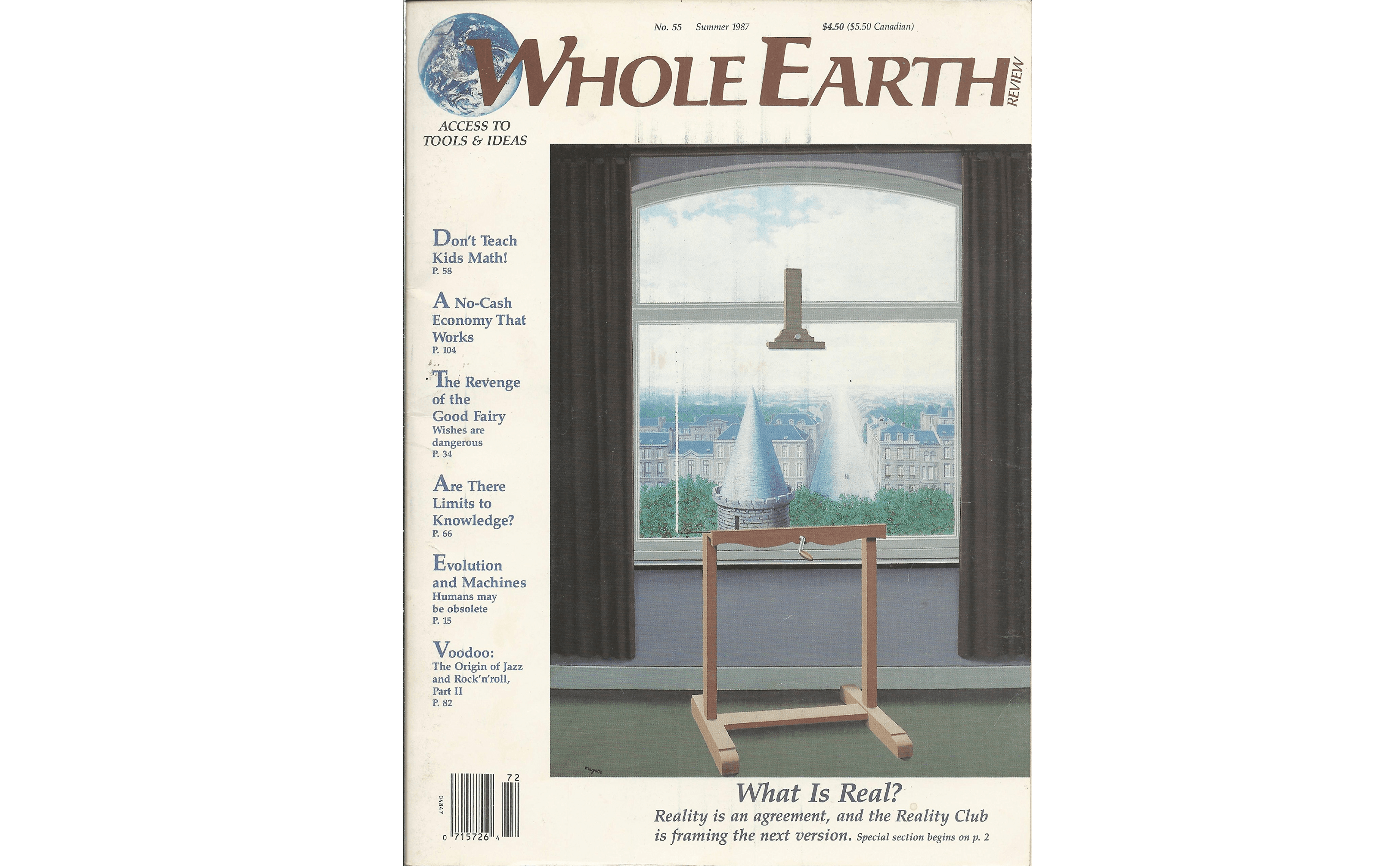
It's like, I started out with a horse and buggy and now, I have my own spaceship. It's amazing to think… of course, I use search 100 times a day but they've got things like Even Think and TheBrain and other kinds of knowledge management, tools and thinking tools and online concept mapping. I think the large end of the funnel for a writer has gotten so big that you can gather so much more information that this causes some problems. At the small end of the funnel, how am I going to integrate all of this?
Tools that take all of the little snippets that you've gathered and show you ways that they could be organized or which ones might relate to each other are tremendous help. I think that there's still a long way to go in that.
You still have to take everything that you have discovered, and arrange it in serial order. If you're writing a book or you're writing an article, it's still got to come out in that serial order. I know this is a little off topic, but I remember when we were first starting HotWired, we were very aware that we were creating a new medium, and that whatever we did, people would follow. I remember a meeting that was strictly about, we need to have a feature in which people write essays, in which they include links. Stop for a second, that sounds so weird, doesn't it? Don't we all naturally include links when we're writing these days?
It's part of the literacy of writing. Back in those days, it was something that you really had to think about. So anyway, back to family. Well, it really helped when I was traveling, and I did a lot of speaking and traveling to be in touch back home. I mean, being in touch was a lot harder, back in the old days. There was a time when, if you were in a different country and you wanted to make a call to the US, you had to have the people in your hotel set it up and call you when it was ready to go. Being of course, able to communicate with my daughter when she was in college and when she's away and we still communicate everyday, how many families have the family WhatsApp chat going on or even some people have, like a walkie talkie app.
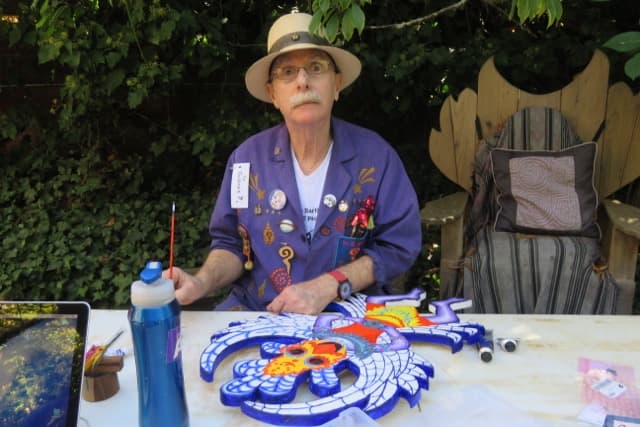
So you can have people from all over the world. I remember in the early days talking to a waitress in Sweden about this and she said, "Well, I have one sibling in Australia and another one in Thailand, and if it wasn't for email, it would be very expensive for us to stay in touch." So I think there's a negative side of that, which is when you went to college, you used to kind of be on your own and maybe you would call mom and dad or write mom and dad. Nowadays, like back before online maps, my daughter would call and ask, "I'm trying to go to so and so address, how do I get there?" So many things have changed in human relations, including that of the family. I think in some ways, being able to be in touch all the time is a great innovation.
In some ways, it's harder for young people to form their own personalities and detach, leave home. They don't really leave home so much anymore.
DEVON: One thing I think, I don't fully appreciate but every time I've learned about it, I've been more impressed is how differently different people use computers. Whenever I sit and watch a friend using a computer or my parents, or anybody, they always use it quite differently than me. Sometimes it's like small things, like the text size on their phone is different than mine and I forget that you can even change that or sometimes it's deeper things like how did a friend set up their text editor or their terminal, things like that. I think it's really fun to see the rise of tools like Twitch for things like video streaming, and those sorts of things where we can get a little bit more visibility into how other people use these tools.
I think everything I know about computers really has either been from poking around myself or by incorporating things that other sort of folk practices, that I've seen other people use. So I think it's also about seeing other people use computers in ways that you didn't think of and also being able to transfer your knowledge to them directly, and it's very much like a peer to peer type of learning environment.
HOWARD: Well, again, when I was at HotWired I was 49 and my intern was 19. I just surrendered the computer to him and let him configure it, and let him show me how to use it. I think I'm not a believer in the digital native. I don't believe that just because you're not, you know everything, especially the social and political and ethical implications, but I believe that young people have a lot more time and that they have this kind of peer network to learn whatever is the new way to communicate. I think older folks need to listen to the younger folks more.
DEVON: I think there's a general myth of fluency both for digital tools as well as language around youth, where a lot of people think, "Oh, because I didn't learn the language when I was young, I'll never be able to pick it up." It might be true that it might be hard to pick up certain sounds when you're speaking or in the case of digital tools, you might not have certain intuitions, but I think the experience that you bring to the table can give you different types of expertise in that space. So to stretch the language analogy, I've been learning Spanish and I'm almost fluent but every once in a while I will invent a word without realizing that I invented a word. My boyfriend who's an Argentinian will often go, "Hey, that's not a real word but I like it." He's like, "I know exactly what you mean but also that's not a real word."
I think similarly with digital tools, sure maybe, if you didn't grow with it, you might not have quite as much certain types of the fluency but in other ways, you're going to understand the system better, and you might have like a better mental model of like actually what's going on technically, as opposed to just sort of leaning in. So, I think it might be true that it's not that you come to the table necessarily with the same skills but you come with different strengths.
HOWARD: Well, and also, I think nobody of any age is able to encompass the kind of cultural cornucopia of innovations that are happening. When I started teaching college students in 2005, I was pretty sure that I knew more than they did about life online. By 2012, none of us knew everything there was about social media, so we started to kind of show and tell where every week, a couple of students would show us what they were doing online that was really interesting. Most of the class learned something from that, whether it was Tumblr or YouTube or Reddit. People were really into something and really understood it, and other people may have known that it existed, but didn't know much about it. I think that we're never going to be able to encompass it. I think we just need a culture of not being ashamed of learning from each other.
DEVON: There is a certain part of internet culture, I think, where it's very self-reflective and I don't mean to be offensive, but like navel-gazing around people who sort of say, "I'm an internet person and I know more about internet culture than other people do." That's always sort of gotten on my nerves, because I think it's like, you know a certain part of internet culture and it just happens to be the part that is self-reflective about the fact that it's on the internet. We're actually all on the internet. We all know different things about it and I think that there's a certain moral superiority that some people come with, which I don't personally think is warranted.
I think socially, if we were just able to accept a new behavior of saying, "Wait, can you teach me what that's about? I have no idea." The other person is saying, "Oh, sure, it works like this." I think we'd be a lot better off.
HOWARD: I don't think you can learn all these things in school. I mean, you don't learn about cultural habits in school. I am running out of steam.
DEVON: So many people who didn't grow up with computers or the web are a little intimidated by these technologies. I see this among some of my friends and some of my family members as well. By conscious, it seems like you pick up new tools and ways of interacting with them, with a lot of enthusiasm and actually, when we were entering this Zencaster recording, I think you figured out the audio before I did. What advice would you have to people who are a little intimidated by the prospect of diving into new technology?
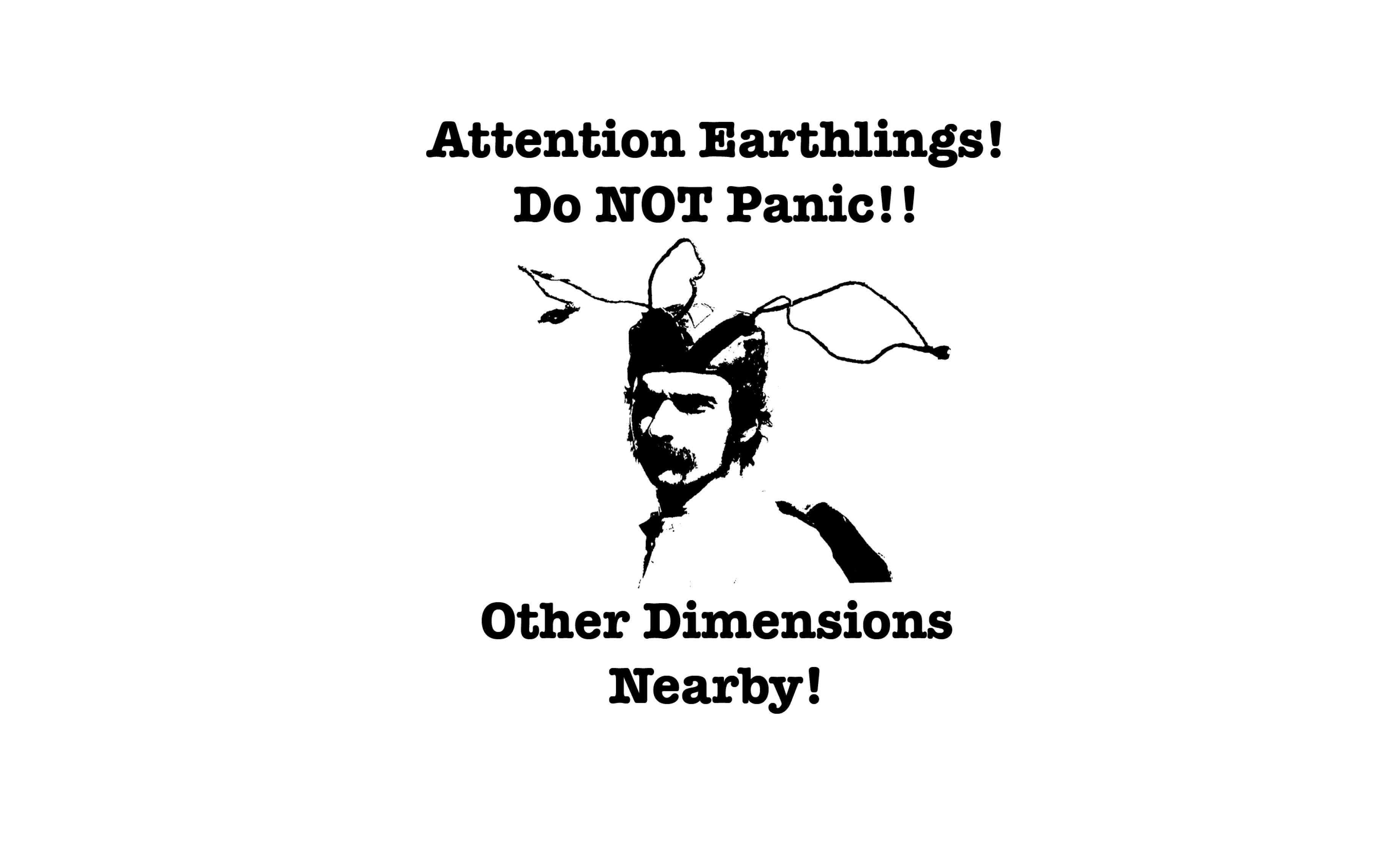
HOWARD: There's an enormous value in just playing with things and I think that if we valued fooling around with a new tool, and just seeing what it might do, rather than, I don't know, being embarrassed by not knowing how to work it, we would all benefit from that. Again, I think it's social and cultural. I think that if we had a culture of learning from each other, if this begrudged business got embedded in everything, and what stops you from messing with something or asking something how it worked is because you're afraid of the unknown and you're going to make mistake, and you're going to be embarrassed in front of people and you're going to break something. I think that if we did away with that, and just enabled people to play as they learn, and I think this applies to everything from K-12 to universities, to learning how to operate a computer, we would advance our learning a lot better.
DEVON: Well, that's a perfect place to stop. Thank you for taking part of your day to talk with me. This has been a super fun conversation.
Brought to you by Devon Zuegel
Devon is a software engineer and writer based out of San Francisco.
Edited by Molly Mielke
Audio by The Land Films
Illustrations by Roman Muradov

